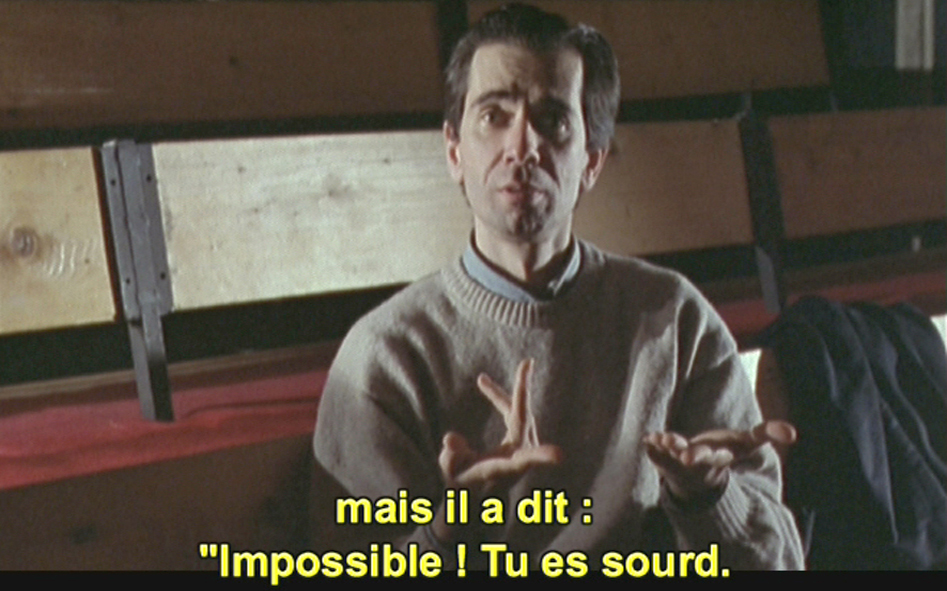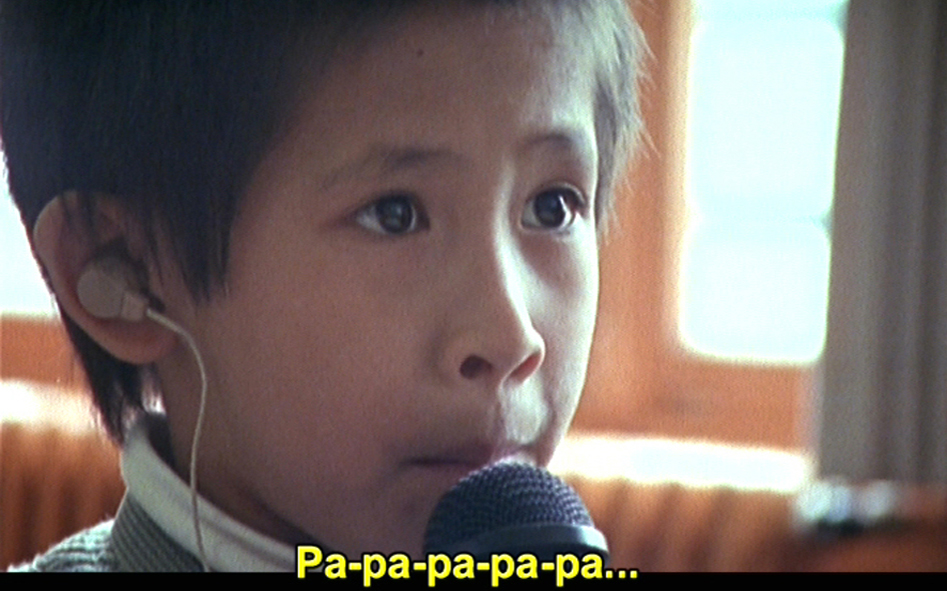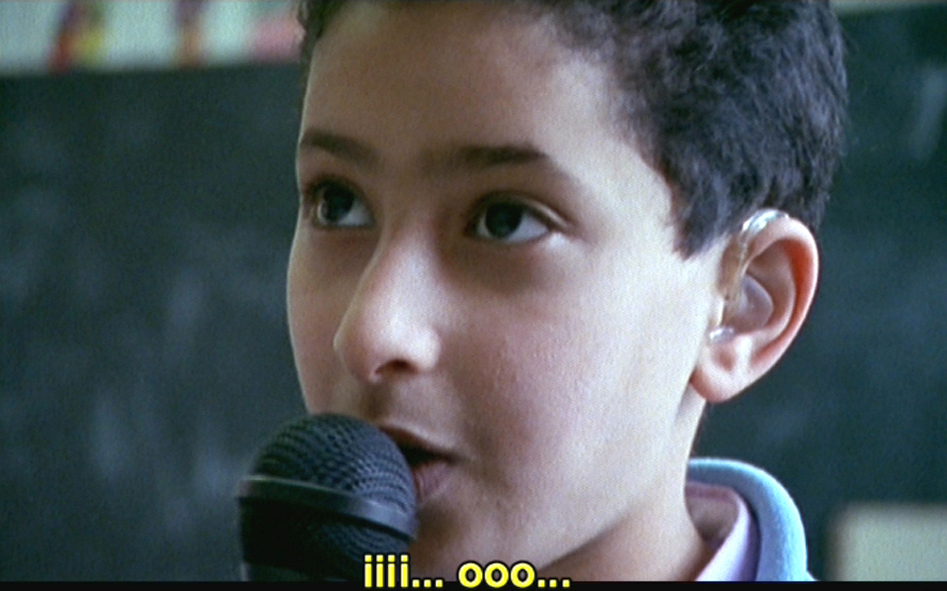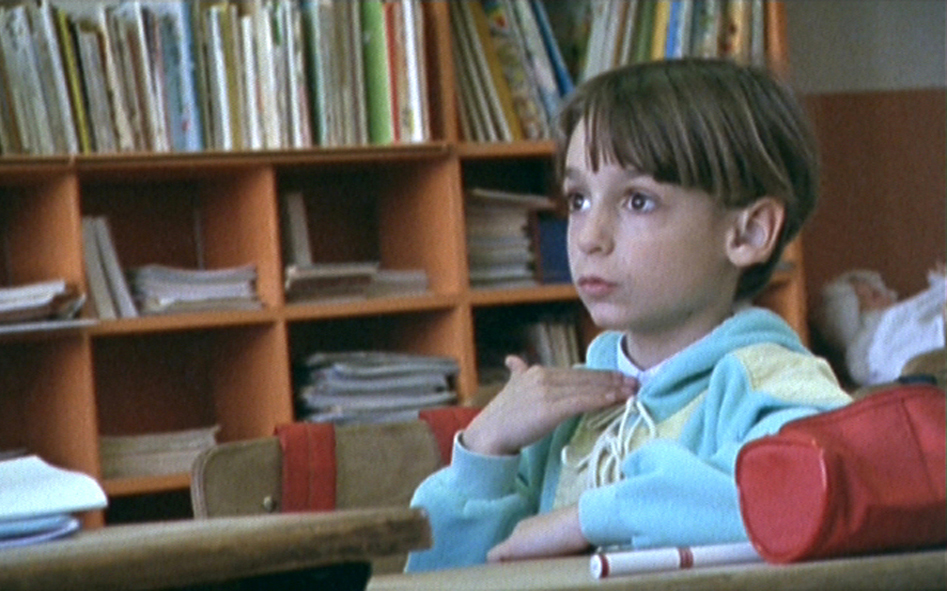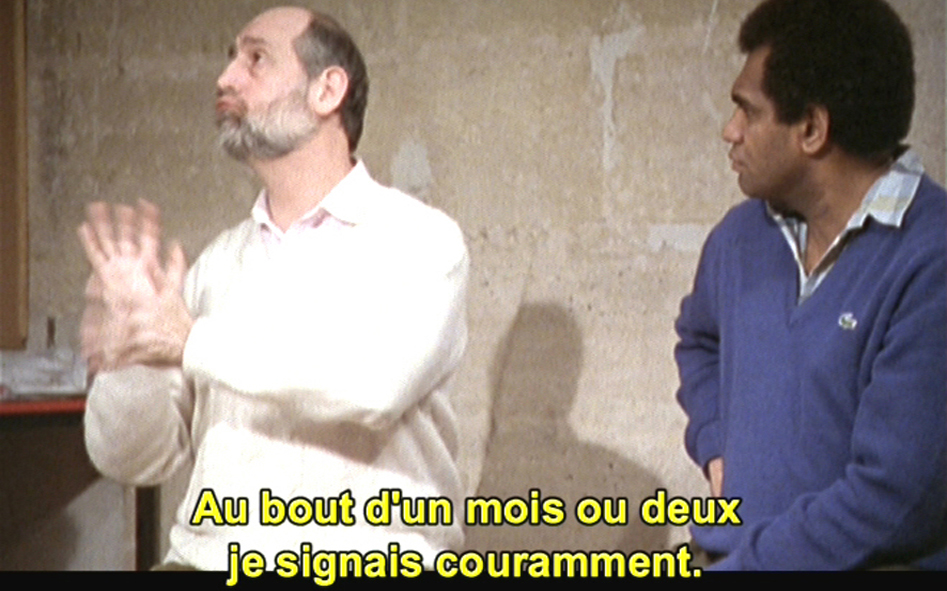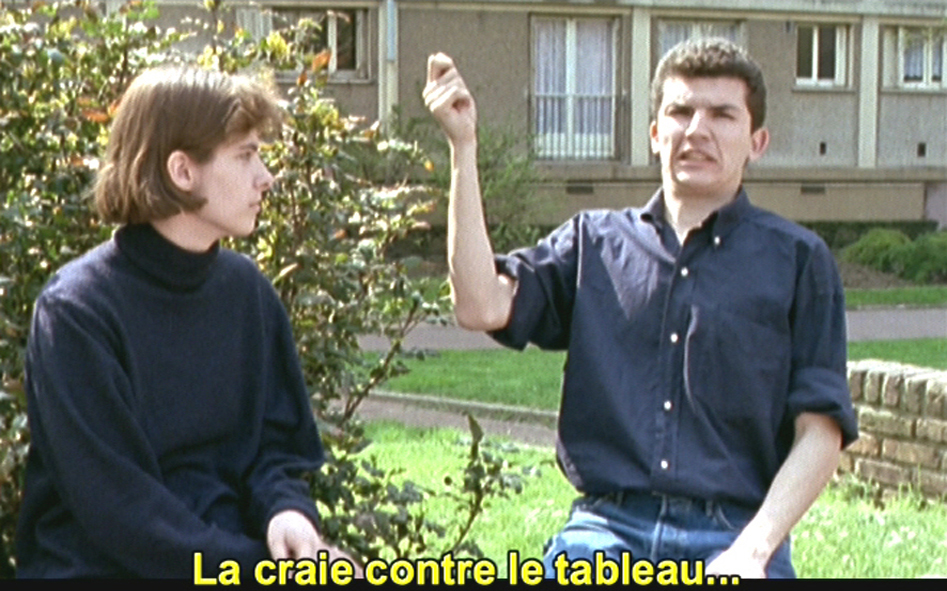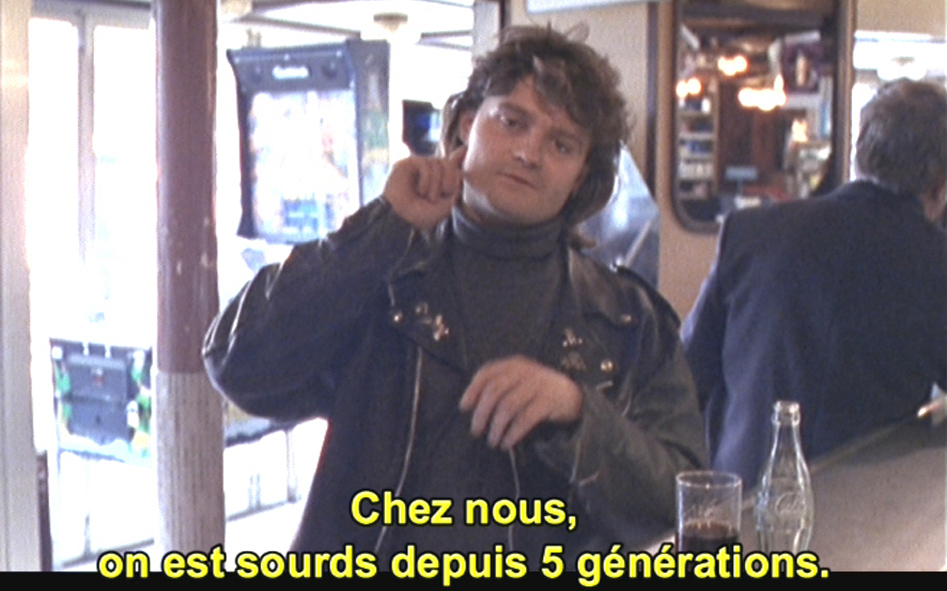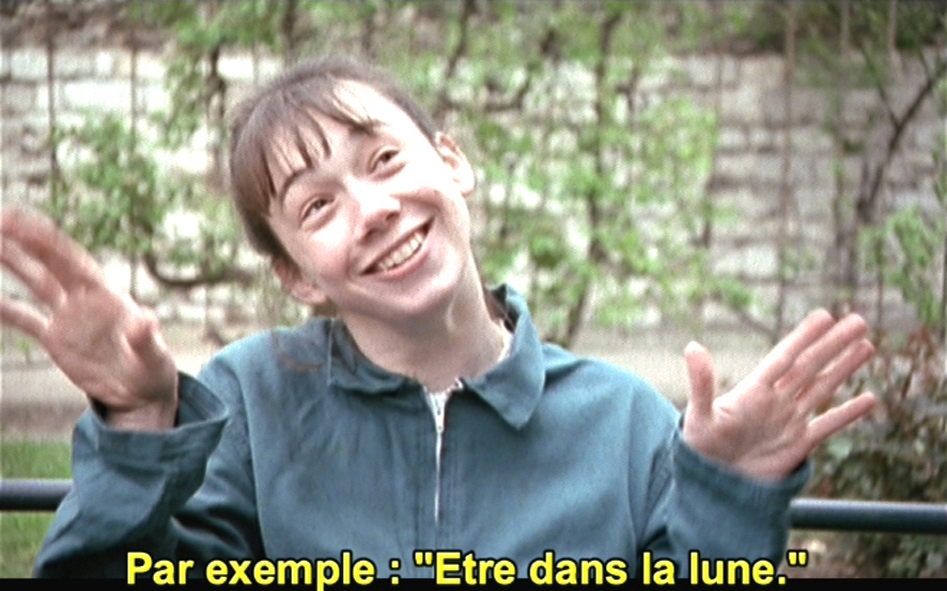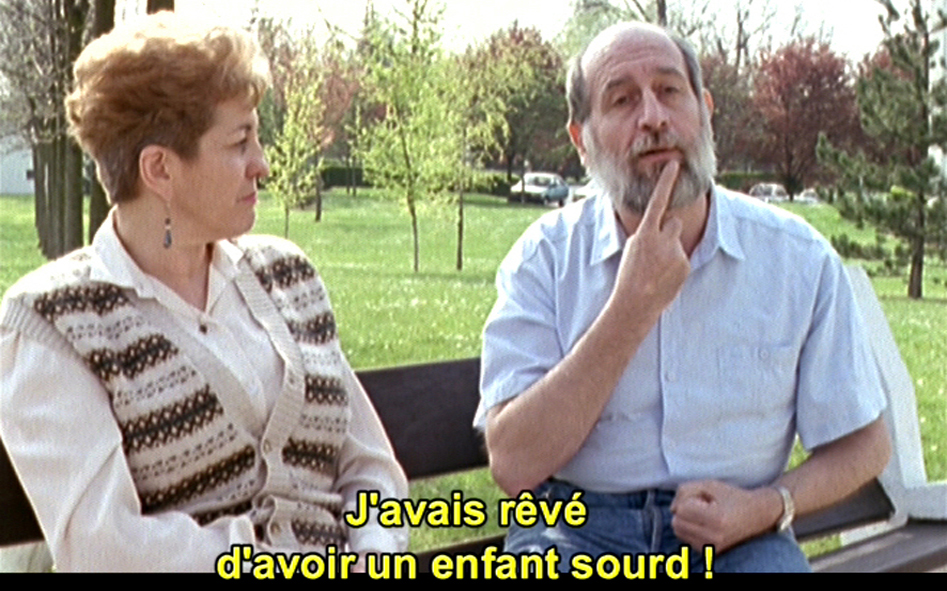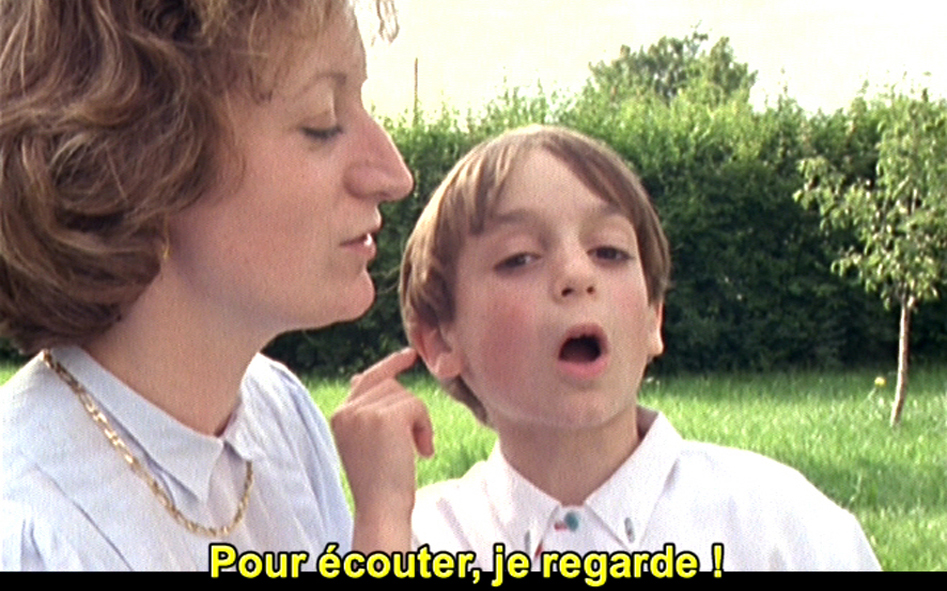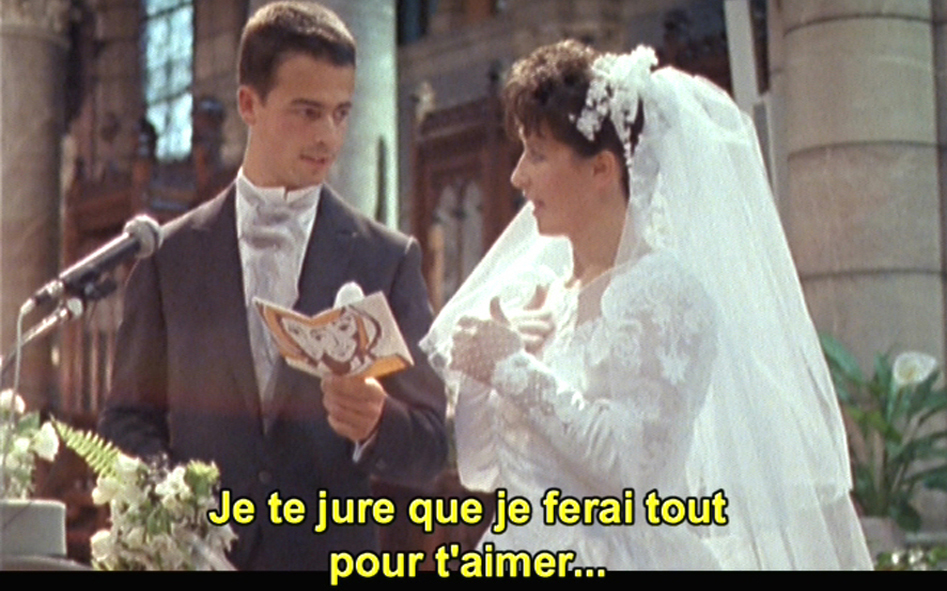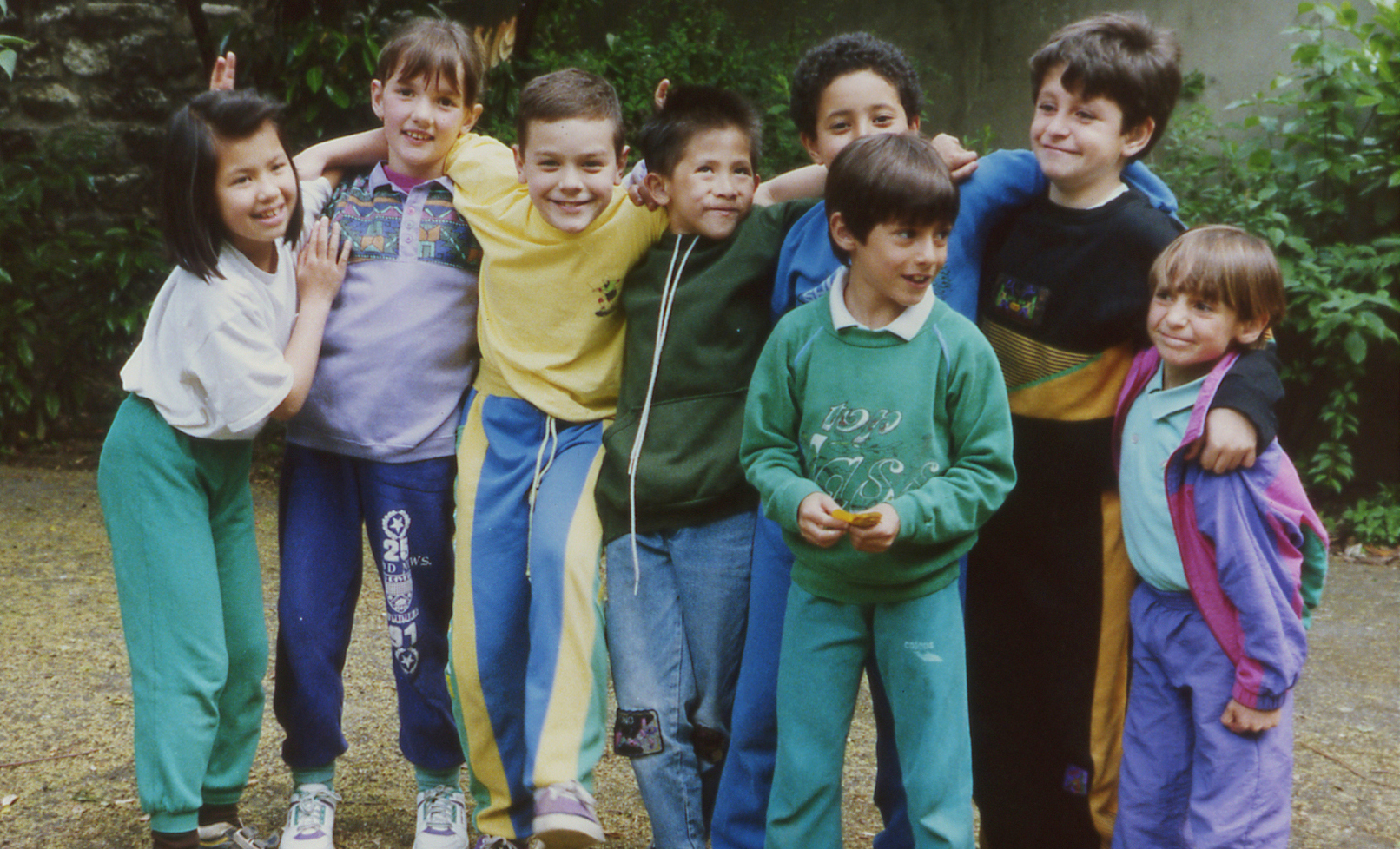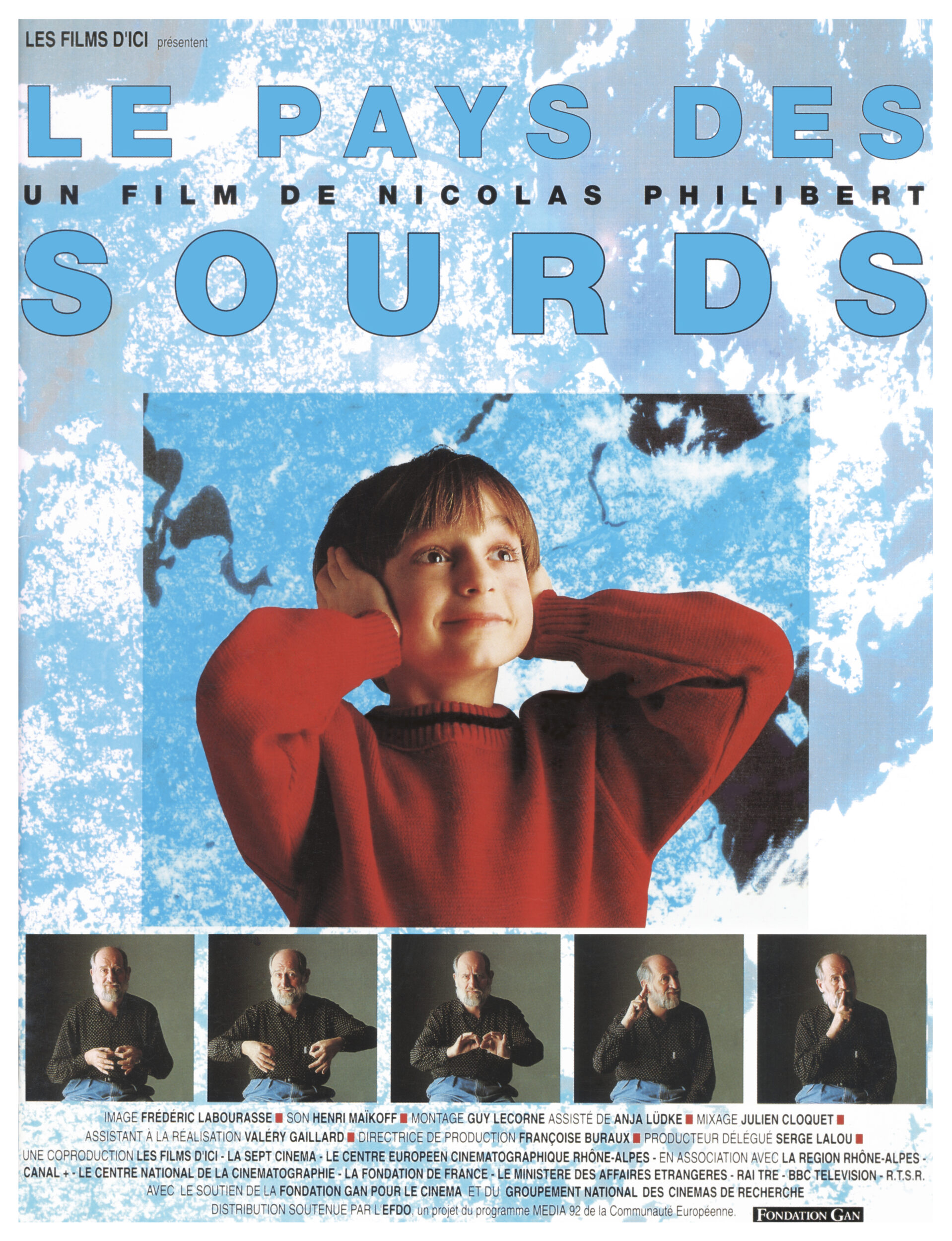À quoi ressemble le monde pour les milliers de gens qui vivent dans le silence ?
Jean-Claude, Abou, Claire, Florent et tous les autres, sourds profonds depuis leur naissance ou les premiers mois de leur vie, rêvent, pensent, communiquent par signes. Avec eux, nous partons à la découverte de ce pays lointain où le regard et le toucher ont tant d’importance.
Image Frédéric Labourasse • Son Henri Maïkoff • Montage Guy Lecorne assisté de Anja Lüdke • Mixage Julien Cloquet • Assistant à la réalisation Valéry Gaillard • Direction de production Françoise Buraux • Producteur délégué Serge Lalou • Une coproduction Les Films d’ici, La Sept-cinéma, Le Centre Européen Cinématographique Rhône-Alpes • En association avec Canal +, la région Rhône-Alpes, Le Centre National de la Cinématographie, La Fondation de France, Le Ministère des Affaires Etrangères, RAI TRE, BBC Television, Télévision Suisse Romande.
Sélection officielle au Festival de Locarno, 1992 • Sélection au Festival de Yamagata, Japon, 1993 • Prix de la Fondation GAN pour le Cinéma, 1992 • Grand-Prix du Festival de Belfort (France) 1992 • Grand-Prix du Festival dei Popoli (Florence, Italie) 1992 • Grand-Prix Festival de Vancouver (Canada) 1993 • Prix « Tiempo de Historia », Festival de Valladolid (Espagne) 1993 • Prix Humanum, Association de la Presse Cinématograph. de Belgique, 1993 • Grand-Prix du Festival de Bombay (Inde) 1994 • Golden Gate Award, San Francisco International Film Festival, 1994 • Prix du meilleur documentaire, Festival de Potsdam (Allemagne) 1994• Stephanie Beacham Award, 13th Annual Communication Awards, Washington D.C., 1994 • Peabody Award, USA, 1997
Distribution & ventes internationales : Les Films du Losange
Sortie salles France : mars 1993 (MKL)
“ For the first few days of shooting, I was completely at sea ! ”
Interview with Nicolas Philibert, conducted by Georges-Henri Mauchant in 1991.
How did you get the idea for the film ?
It’s a story with lots of twists and turns, and its origins go back years! In 1983, I was contacted by a group of psychiatrists to take part in the preparation of an educational film about sign language. As I didn’t know a thing about the world of deaf people, I signed up for a course in sign language which was given by a young teacher who was completely deaf himself. It was a real shock! Up until then I had seen deaf people as handicapped, period. And there I was all of a sudden faced with a man with a quite outstanding wealth of expression, a kind of born actor, capable of conveying all the shades of meaning of a thought just through the movements of his hands and the expressions on his face. For reasons which I don’t recall too clearly, the project put forward by those psychiatrists came to nothing, but for my part I started meeting more and more deaf people and I became really interested in their way of communicating. By discovering the beauty of sign language, the incredible range of its possibilities, and by also discovering the importance of things visual among deaf people, the keenness of the way they look at things, and the extraordinary visual memory they are capable of having, I started to think that a film about deaf people would be a way of “working” the very stuff of film, for the very good reason that it involves a language in which every word and every idea is translated by images drawn in space. So I wrote a fictional screenplay, but after various ups and downs, I didn’t manage to find the funding for it, and in the end I moved on to other things… But in 1991, the idea resurfaced, this time no longer in the form of a fiction film, but as a documentary, or, let’s say… a film that would tell true stories, with real characters.
What were the basic choices that steered your work ?
My idea was to make a film that would abruptly plunge the viewer into the world of deaf people, a film whose mother tongue would be sign language. If I can so put it, I wanted to let those people about whom we know nothing speak for themselves, people who have a totally different communication system from ours. My intent was to try and look at the world through their eyes. Over and above the “handicap” issue, what the film emphasizes is the existence of a real deaf culture, which has its own roots, its codes, its models, and its customs. I wanted to confront the viewer with that particular culture, not in an abstract or theoretical way, but by following various characters and telling their story. So, without any exceptions, the characters are people who are completely deaf, born deaf, or people who became deaf during the early months of their lives, in other words before they acquired language. I decided not to include “hearing-impaired people”, even though there are more of them, but this is a film, not a statistical survey! The challenge and the wager involved moving to the other side, and setting out to discover that distant “land” where seeing is of considerable importance.
How did you set about meeting the characters in the film ?
First of all I started by getting deeply involved again in learning sign language, which I had not pursued for years. My assistant did the same thing, and got just as much pleasure from it as I did. This approach was essential because I didn’t want to have to have an interpreter, I really wanted to establish a direct contact with the people. I can’t truthfully say that we became good at signing, but we got by, and it was this that gave us entry all round. Be that as it may, when shooting began, I certainly didn’t have all the characters lined up. The idea to film a marriage came rather late, for example, and what’s more, it took me two months to find the couple in the film. So the characters were chosen little by little as shooting went ahead. There were people who were obvious choices right away, like Jean-Claude Poulain and the school children, and others, like the newlyweds, whom we had to spend a long time looking for. There were others, lastly, like the group of young Americans who ended up in the film more or less by chance.
How was the shooting? What problems did you come up against ?
The filming was spread over a period of about 8 months, with alternating phases of location scouting and preparation. For the first few days I was completely at sea! I was filming situations which I didn’t understand anything about, and it was disastrous. When a deaf person addressed me, it was more or less okay because he would make an effort to “sign” slowly; but I couldn’t decipher the sign language well enough to follow deaf people when they talked with each other, it went much too fast for me. And then because deaf people express themselves through signs, that capsizes all conventions: you can no longer do close-ups or cutaway shots because you risk losing the thread. Among deaf people there is no such thing as a voice-over, there is no off-screen. So we really had to go through a whole learning process to work out what filming methods were suitable, the framing, where to place the camera, and the right distances.
Did you know in advance how the film would be constructed ?
During the filming I gathered a whole lot of material, almost 40 hours of rushes… but in fact it was not until the editing that the film really came together in a concrete way. Needless to say, at the outset I had established one or two narrative principles… but at the same time, I was keen to leave the door open and reserve plenty of room for improvisation and off-the-cuff spontaneity. I hate feeling I’m a prisoner, obliged to confine reality within a discourse that’s been laid down in advance, because reality is always richer than the way we sum it up. I like to tackle things in such a way that the “real” can jostle the way things unfold. Incidentally, there are a few sequences, all the ones where the characters directly address the camera, which I decided to shoot while the film was being edited, at a particular moment when the construction of the film had come up against a brick wall.
So it was during the editing that the film was actually “written” and that we found its narrative form. For me, the editing phase is a bit akin to a slow labour of mourning, during which you have to get rid of and undo the bulk of what has been filmed.
Did you deal with the soundtrack in any special way ?
For a long time I clung doggedly to the idea that you could recreate the way deaf people perceive sounds; because even among totally deaf people, there’s rarely such a thing as pure silence; rather you have something far away, and very distorted. In particular I was keen to deal with certain sequences in the school like that, as if reproducing the subjective viewpoint of the children when the schoolmistress asks them to repeat a sentence after her. The viewer can instantly under-stand how difficult it is, because it’s totally abstract, for a completely deaf person to reproduce sounds and master his or her voice. So with the sound engineer and the editor, we went into a hearing aid specialist’s cabin to listen to sounds the way various kinds of deaf people pick them up. Subsequently, during the editing, we started to rework certain sequences based on this particular perception, but it didn’t work. Whatever we did, it came across as a terribly phoney “film effect”, and it wasn’t remotely believable. So I came back to simpler ideas. The ambient sound was often toned down, put at a slight remove, in such a way as to focus the viewer’s attention on the gestures. What’s more, there’s no extra music in the film. The only musical moments tally with scenes in which the music was part of the “live” sound: in the theatre, in the church during the wedding, after the wedding banquet when everybody is dancing, and in the school, when children with normal hearing from a nearby class are singing.
